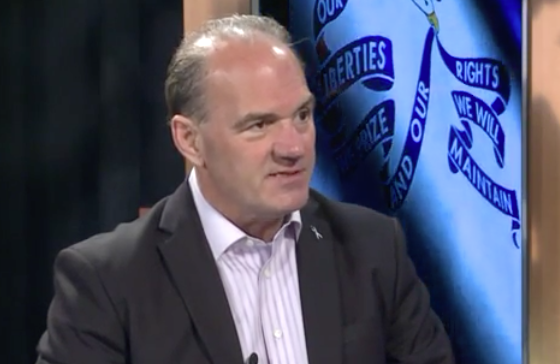The Des Moines Register’s new poll of 400 likely Republican caucus-goers indicates that Representative Michele Bachmann is gaining ground. Selzer and Co surveyed Iowans between June 19 and 22, and the margin of error for the sample of likely caucus-goers is plus or minus 4.9 percent. Former Massachusetts Governor Mitt Romney leads the field with 23 percent support, but he has already indicated that he won’t invest heavily in Iowa this cycle. Bachmann nearly matched Romney in the Register’s poll with 22 percent. Former Godfather’s Pizza CEO Herman Cain placed a distant third with 10 percent, followed by former House Speaker Newt Gingrich and Representative Ron Paul (7 percent each), former Minnesota Governor Tim Pawlenty (6 percent), former U.S. Senator Rick Santorum (4 percent) and former Utah Governor Jon Huntsman (2 percent).
Romney’s best numbers are among moderates, people with less than a college education, and those earning less than $50,000 per year. Bachmann did particularly well with respondents who are very conservative, well-educated and/or between the ages of 45 and 64. The encouraging poll numbers will give her more buzz just as she is scheduled to formally announce her candidacy (for the second or third time) in Waterloo on June 27.
The results are terrible for Pawlenty, who doesn’t seem to be getting any traction out of his large staff and many Iowa visits. Putting a less-bad spin on the numbers,
Republican pollster Randy Gutermuth pointed out that the Iowa Poll took place before Pawlenty’s television ads, direct mail and other paid voter outreach had time to penetrate.
“It’s way too early to be writing off Tim Pawlenty,” said Gutermuth, who is not affiliated with any presidential candidate. “I’m sure they’d rather be leading today, but I don’t think they’re jumping out of buildings either.”
Maybe not jumping out of buildings, but eager to change the subject as soon as this poll came out. On June 26, Pawlenty’s campaign announced the formation of an Iowa Legislative Steering Committee. Legislators serving on the committee cover all regions of the state: Iowa Senators Randy Feenstra (district 2), Rob Bacon (district 5) and Shawn Hamerlinck (district 42), and State Representatives Chip Baltimore (district 48), Joel Fry (district 95), Erik Helland (district 69), Chris Hagenow (district 59), Steve Lukan (district 32), Linda Miller (district 82) and Matt Windschitl (district 56). Unfortunately for Pawlenty, all the endorsements in the world won’t turn things around unless the candidate starts connecting with caucus-goers. Right now Bachmann leads him even as a second choice for Iowans who prefer Romney–and that’s without any of the candidates picking apart Pawlenty’s fiscal record and heavy state borrowing.
Speaking of the Register’s opinion polls and caucus coverage, the Sunday paper announced that Jennifer Jacobs will be the Register’s chief political writer. She replaces Thomas Beaumont, who took a job with the Associated Press this spring.
Any comments about the Republican presidential race are welcome in this thread.
UPDATE: Douglas Burns tells us what a top British bookmaker says. Even before this poll was released, Ladbrokes gave Bachmann the best chance of winning the Iowa caucuses.
SECOND UPDATE: More detailed questions results from the new Iowa poll are here. I’ve highlighted some interesting results from the “issue” questions after the jump.
Continue Reading...





